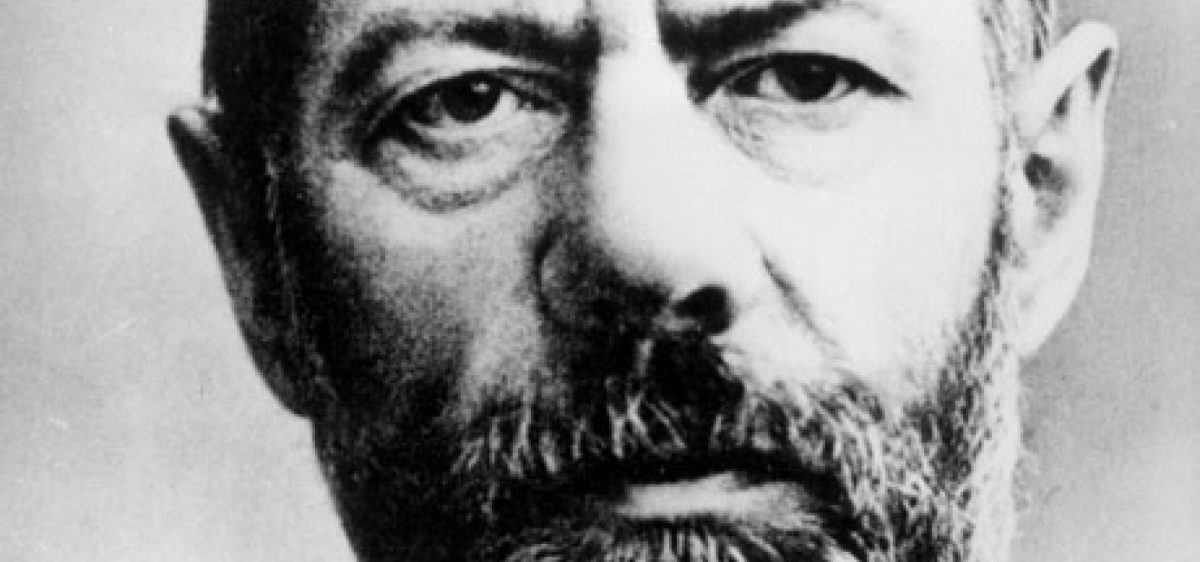カール・ポパーという哲学者がいて、最近日本でもすっかり有名になっているアドラー心理学を科学ではない「疑似科学」と批判しています。その理由は
(1)反証することが不可能→そもそも明確な根拠も不明な諸前提に基づいた論で、科学的なエビデンスを出して反証することが不可能。
(2)なんでももっともらしく説明してしまう。
の2つです。
これってよく考えたら、ヴェーバーの学問にもそのまま言えるのではないでしょうか?プロ倫におけるヴェーバーテーゼはきわめて知名度が高いですが、そもそも本人が証明に失敗しているし、またはっきりと誤っているという証明に成功した人もいません。即ち反証不可能。
また、ヴェーバーの宗教社会学を見れば、色んなことをもっともらしく説明するのばかりだということは誰でも読めば分かります。
これって、誰でも気付きそうな内容なのにこれまで主張している人を見たことがありません。もしかするとこのことを明らかにするとヴェーバー教団から刺客が送られて暗殺される?(笑)
ちなみに前の投稿で、ヴェーバーの理念型のファイヒンガーの「かのようにの哲学」の影響を論じましたが、アドラーもまたファイヒンガーの「かのように」を心理学に応用した人です。
(余談ですが、私はブームになるはるか前からアドラー心理学は知っています。昔Nifty Serveの外国語フォーラムで野田俊作さんという日本におけるアドラー心理学のエヴァンジェリスト的な人と知り合いだったからです。岸見一郎氏はちなみにそのフォーラムのシスオペ{会議室管理者}でした。岸見氏のアドラー心理学は元々野田氏から教わったもの。)
日: 2025年11月28日
マックス・ヴェーバーと森鴎外(2)
ヴェーバーの理念型がファイヒンガーの「かのようにの哲学」の影響によるものだという仮説について、同じことを言っている人を発見しました。
https://www.haujournal.org/index.php/hau/article/view/1675
Reality remodeled
Practical fictions for a more-than-empirical world
Lars Rodseth
Abstract
Most ethnographers have little use for models and other formal abstractions, yet even a staunch empiricist such as Franz Boas could appreciate the “aesthetic” advantages of idealization and simplification. These advantages have been largely ignored in recent decades, as anthropologists have come to favor ever more intricate and encompassing accounts. The resulting “ethnographic involution,” I suggest, has steadily diminished anthropology as a source of usable, socially shared knowledge. Much the same problem, interestingly, was confronted long ago by Max Weber, who developed the method of “ideal types” precisely as a way to grasp, represent, and investigate the complexity of historical reality. Weber converged in this regard with his contemporary at Halle, the neo-Kantian philosopher Hans Vaihinger (1852–1933). Since the late twentieth century, Vaihinger’s “fictionalism” has attracted renewed interest within philosophy and beyond. Yet his notion of “as-if” reasoning—a via media, I would argue, between particularism and positivism—remains virtually unknown within anthropology.
森鴎外は「かのように」の中で、当時の欧州で、ヴェーバーのような社会科学系だけでなく、プロテスタント神学(鴎外は社会を安定させるものとしてプロテスタント神学を「かのように」の中で高く評価しています、要するに神学では神をあたかも存在しているかのように扱う訳です)、それどころか自然科学(例えば当時の物理学でのエーテルとか、電子、陽子などはその存在が確認されていたのではなく、モデルとして考案されたもの)にも共通する考え方であることをファイヒンガーの本を読んで理解しています。ちなみにファイヒンガーのこの本は900ページ近くありますが、鴎外は「かのように」での記述が本人の実体験に基づくものとすると、この2/3を何と一晩で読んでいます。恐るべきドイツ語読解力です。
前の投稿で書いたようにヴェーバーと鴎外はほぼ同世代ですが、この二人色んな意味でそっくりです。
(1)異常なレベルの広範囲な読解力
(2)攻撃的な論争が大好き
(3)高度な語学力
(4)そういった学問の間に女性と…(笑)(ヴェーバ-の場合のエルゼ・ヤッフェとミナ・トープラ-、鴎外の場合のエリスや児玉せき他)
鴎外はおそらくドイツに滞在した時に、ヴェーバーを読んだかどうかは不明ですが、社会科学系もそれなりに読んだのではないかと思います。それを鴎外が帰国後語っていないのは軍医という立場と大逆事件以降の思想取り締まりの影響との両方がありそうです。
「経済と社会」における「理解社会学のカテゴリー」破綻例
「理解社会学のカテゴリー」のタームが、「経済と社会」の中で決して効果的にも説得的にも、意味整合的にも使われていないという例を見つけました。
====================================
「支配の社会学」世良訳:P. 115 「四 官僚制的装置の永続的性格」
ひとたび完全に実現されると、官僚制は最もうちこわしがたいい社会組織の一つになる。官僚制化は、「ゲマインシャフト行為」を合理的に組織された「ゲゼルシャフト行為」に転移させるための、特殊的手段そのものである。したがって、官僚制化は、官僚制的装置を統轄する者にとって、支配諸関係の「ゲゼルシャフト化」の手段として、過去においても現在においても、第一級の権力手段なのである。
(元訳の「共同社会行為」などは「ゲマインシャフト行為」等に変更。)====================================
ここで言っているのは「ゲマインシャフト」を「ゲゼルシャフト」に転移させること(「ゲゼルシャフト化」)において官僚制化が有効と言っているのであって、ゲマインシャフト、ゲゼルシャフトにそれぞれ「行為」を付けるのは、それをヴェーバーが「理解社会学のカテゴリー」で定義していることを考えても、およそ無意味で誤解を招くだけです。成員の行為に変化が生じるのは、その共同体の性格が変わった結果であり、原因でも先行するものでもありません。
折原先生の説明だと、ヴェーバーは社会関係を所与のものとせず、個々の成員の行為から動的に構成されると論じているのですが、それが通じるのはゲマインシャフトの最初の形成の段階だけであり、ここのようにゲマインシャフトがゲゼルシャフトへと合理化する過程においては既に行為はその動因としては無意味になっています。従ってヴェーバーのカテゴリー論自体が破綻していると考えます。要するにカテゴリー論文が持っている元々の欠陥がここに現れているのであり、「頭」としては機能出来ていない例です。
